Self-Direct [action oriented]
Self-directed learning describes a process in which individuals take the initiative, with or without the help of others, in diagnosing their learning needs, formulating learning goals, identifying human and material resources for learning, choosing, and implementing appropriate learning.
As an ACE Pillar, to self-direct means sustaining a laser focus on the goal and targeted outcome. Free from external stimuli that may impede progress and success. It involves students holding themselves accountable for applied effort and outcomes (results).


Self-Manage [decision-making OR responsibility and accountability]
Self-management includes self-monitoring, self-evaluation, and self- reinforcement. When students engage in self-monitoring, they observe their behavior, record its occurrence on a data collection form, and graph the data to evaluate progress.
As an ACE Pillar, self-management is taking responsibility for one's behavior and well-being, including initiative and the ability to manage various aspects of life. The key to successful self- management is to be self-aware. During the first year of college, students do not know what they don't know; often, what they thought they knew changes with experience and exposure. We call it the year of discovery.
Self-Advocate [communication]
Self-advocacy is the ability to articulate one's needs and make informed decisions about the support necessary to meet those needs (Strodden, as cited in Test et al., 2005). It’s the act or condition of representing oneself, either in society or formal proceedings.
As an ACE Pillar, self-advocate is the ability to effectively communicate, convey, negotiate, or assert one's own interests, desires, needs, and rights. The goal of self-advocacy is for the student to decide what they want and then develop and carry out a plan to help them get it. Standing up for oneself is not always easy, but it is a critical skill for students to develop.


Self-Correct [feedback and resources]
"Self-correct" is the ability to correct oneself when things begin to go wrong without external help or direction. (English Dictionary)
As an ACE Pillar, self-correct is adjusting to or correcting mistakes to develop oneself based on analyzing one's results and effort and utilizing feedback from others to correct one's errors.
Feedback is transmitting evaluative or corrective information about an action, event, or process.
